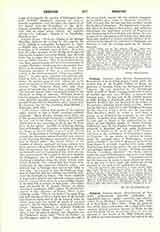

Preston, THOMAS, alias ROGER WIDDRINGTON, Benedictine, d. in the Clink prison, April 5, 1640. He studied first at the English College in Rome, his professor of theology being the distinguished Jesuit Vasquez. He was professed in the Benedictine Order in 1590 at Monte Cassino, being then a priest of mature age, and, says Weldon, a learned and virtuous man. He was sent on the English mission in 1603, landing at Yarmouth, and lived with Dom Sigebert Buckley (the last survivor of the monks of Westminster) until the latter’s death in 1710. Before this he had been indicted at the Middlesex Sessions for the crime of being a priest, and the year after Dom Buckley’s death he seems to have been in prison, as he delegated his authority to two other monks. Expelled from England three years later, he took part at Reims in the negotiations for the union of the English monks of Monte Cassino, Valladolid, and the old English Congregation. He returned to England and was again imprisoned, first in the Clink, on the south side of the Thames, and later in the Archbishop of Canterbury’s palace at Croydon. In one prison or another he wrote, under the assumed name of Widdrington, several works treating of the oath of allegiance proposed by King James I, of which (together with many other Benedictines and secular priests) he was an upholder and apologist against the Jesuits. Weldon says that Preston “evermore disowned” the books written under the name of Widdrington, but there is no doubt that he was the author of them. Towards the end of his life, however, he seems to have altered his views, or at any rate to have made full submission on the question of the oath to the authorities of Rome.
D. O. HUNTER-BLAIR

